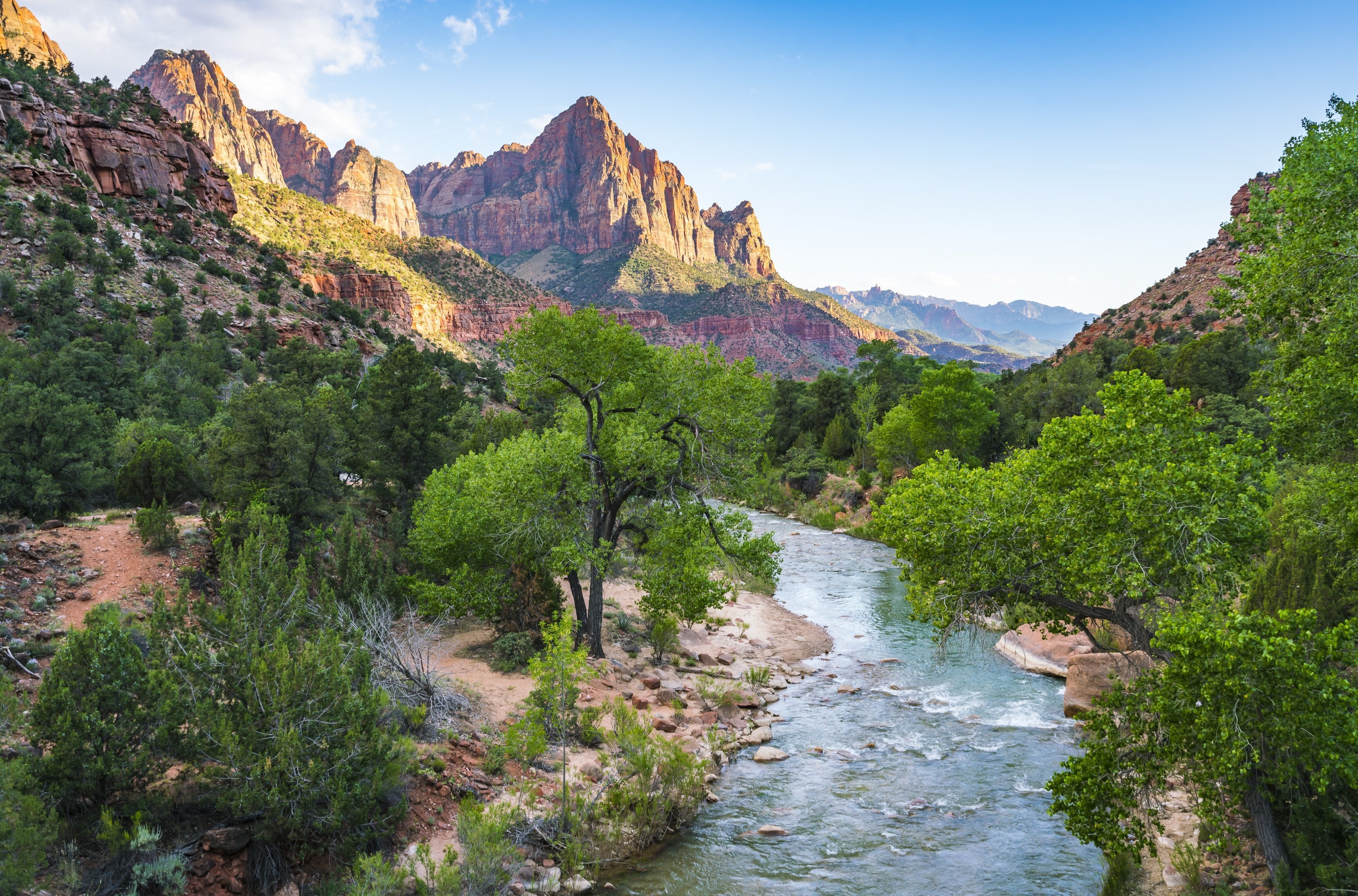
Outdoor water sources are often viewed as being much more pure than water that comes from a tap or other source in a heavily populated area, unless the outdoor water involved happens to be a mud puddle or something equally unappetizing. While it's true that water free from the sewage effluent of major cities is generally safer, people need to be judicious in deciding whether or not to drink it unfiltered, since not all sources of “wild” water are particularly safe.
Animal and Swamp Contamination
There is a good reason why the parasitic infection giardiasis is known as “beaver fever” – beaver and muskrats carry this protozoan naturally and can infest the water with it downstream from their lodges. Many rivers drain out of swamps, also, where high concentrations of animals and stagnant pools create not only a rich, diverse ecosystem but also a possible source of microbial contamination.
Unseen Human Sources of Pollution
Just because an area happens to be rural or wild does not mean that the water has had no contact with humanity before it reaches your lips. The drainage basins of even small rivers are typically far-flung. Checking a map to see if metropolitan or agricultural regions lie upriver is a quick and effective way to determine if sewage or pesticides may lurk in seemingly pristine water.
The absence of a city or area of farmland upriver does not necessarily imply that no human feces are present in it, either. Campgrounds can result in water pollution even in national parks and other remote areas. Again, look at an area map to determine if there are any spots where people frequently gather and their waste products might find their way into the watercourse.
Mineral Risks
Even water that is far from human habitation and does not lie downstream from distant cities, factories, or farmland can be risky to drink in some cases due to natural mineral leaching from the underlying geology of the area. Alkaline water is common in the American Southwest, for example, while arsenic can also occur in natural springs and watercourses.
It is therefore best to do your research carefully before deciding to quaff unfiltered water from any source, other than to stave off dehydration in an emergency. If you do your homework on the area you live in or are visiting, then you will know clearly whether or not filtering is necessary. As a final rule to follow, when in doubt, filter; it is better to be certain that you have good, clean water available than to risk vomiting, diarrhea, and a generally unpleasant time.


Share:
Remove Cholera from Drinking Water
Removing Sediment from Drinking Water